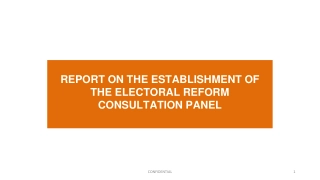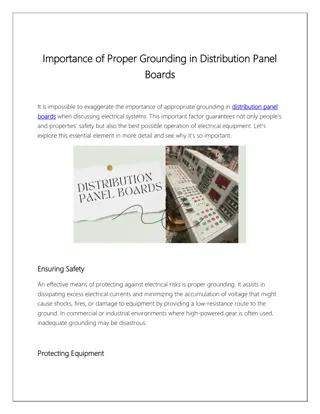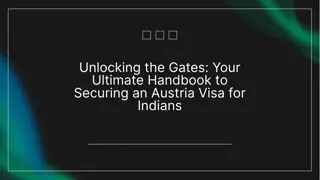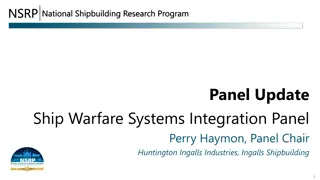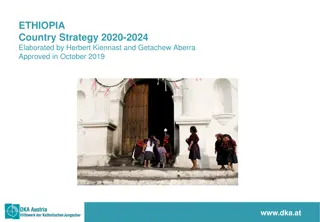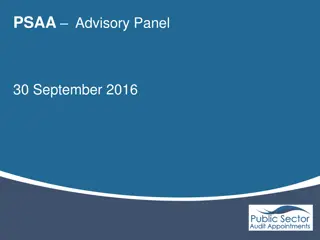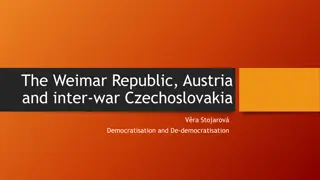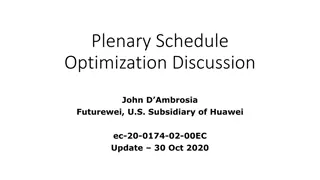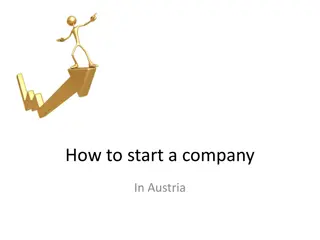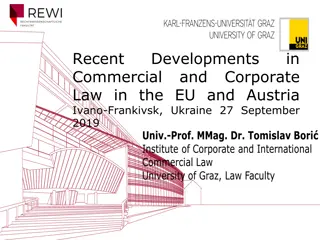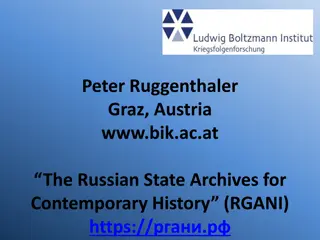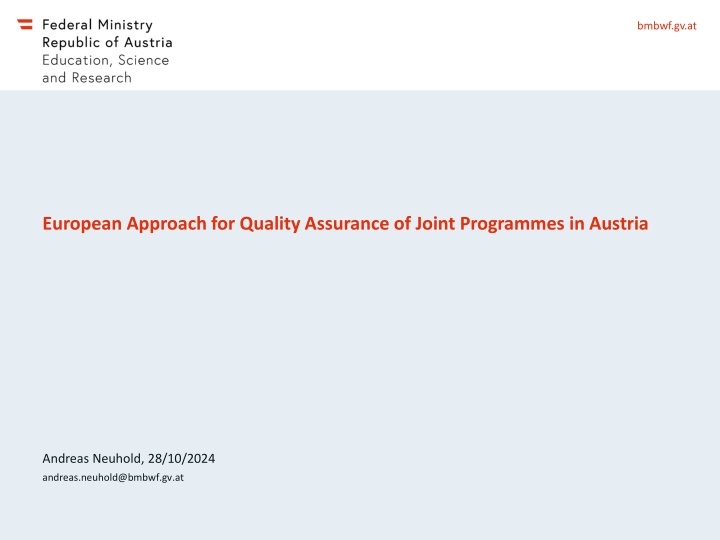
Quality Assurance of Joint Programmes in Austrian Higher Education
Explore the European Approach for Quality Assurance of Joint Programmes in Austria, focusing on the legal framework, mandatory programme accreditation, and collaboration among universities. Learn how Austrian Higher Education Institutions are adapting to quality assurance standards set forth by the European Approach.
Download Presentation

Please find below an Image/Link to download the presentation.
The content on the website is provided AS IS for your information and personal use only. It may not be sold, licensed, or shared on other websites without obtaining consent from the author. If you encounter any issues during the download, it is possible that the publisher has removed the file from their server.
You are allowed to download the files provided on this website for personal or commercial use, subject to the condition that they are used lawfully. All files are the property of their respective owners.
The content on the website is provided AS IS for your information and personal use only. It may not be sold, licensed, or shared on other websites without obtaining consent from the author.
E N D
Presentation Transcript
bmbwf.gv.at European Approach for Quality Assurance of Joint Programmes in Austria Andreas Neuhold, 28/10/2024 andreas.neuhold@bmbwf.gv.at
bmbwf.gv.at Legal situation In 2021, there was an amendment to the law with regard to the European approach for quality assurance of joint programmes (Act on Quality Assurance in Higher Education HS-QSG) For the accreditation of joint programmes at universities of applied sciences (UAS) and private higher education institutions (private universities are subsumed under this heading), the national agency AQ Austria can set up a procedure according to the European Approach for QA of JP in difference to normal national programme accreditations. Therefore, the application of the European Approach is possible for these two higher education sectors. In the case of public universities, there was no need for a change, as programme accreditation is not mandatory for them. 2 EQAR Members Dialogue 2024
bmbwf.gv.at Mandatory programme accreditation If universities of applied sciences or private higher education institutions wish to offer a joint programme with one or more recognised foreign higher education institutions (HEI), the national quality assurance agency (AQ Austria) may establish a procedure for programme accreditation in accordance with the European Approach - which deviates from the usual national procedure. The results of quality assurance procedures carried out in accordance with the European Approach are to be recognised in this context if they have been carried out by a quality assurance agency registered in EQAR. 3 EQAR Members Dialogue 2024
bmbwf.gv.at De facto The national agency has already accepted a corresponding quality assurance procedure for a joint programme involving an Austrian HEI, which was carried out by another European agency registered in EQAR. Several public universities and universities of applied sciences are also cooperating with AQ Austria in the preparation of joint programme accreditation within the framework of the European Approach. 4 EQAR Members Dialogue 2024
bmbwf.gv.at European Universities Joint programmes 17 HEI from Austria are participating in one of these transnational alliances - including universities of applied sciences and a private university. This means a sharp increase in joint programme initiatives. In a recent event with the Austrian HEI participating in the European Universities, hardly any obstacles were mentioned at national level with regard to quality assurance. External quality assurance according to the European Approach is sometimes associated with fewer difficulties than national accreditation procedures (UAS). 5 EQAR Members Dialogue 2024
bmbwf.gv.at Obstacles/Challenges Other legal hurdles may be higher than those of external quality assurance. For example, the duration of the academic years, the grading scale, the academic degrees, the number of ECTS, the effort associated with an ECTS. Institutional regulations at HEI can also be an obstacle. In some cases, there are regulations at HEI in place that make joint projects more difficult. In any case, communication between the Ministry and HEI is important to explore the possibilities (exchange of experiences). It is not enough to point out problems in general. We need to carry out a thorough screening of the relevant higher education laws. 6 EQAR Members Dialogue 2024
bmbwf.gv.at The European Approach for QA of JP has shown its usefulness for transnational cooperation. In this respect, further efforts are needed to improve its implementation. We should develop pragmatic and user-friendly approaches to its implementation and monitor the progress made between the HEI. 7 EQAR Members Dialogue 2024

